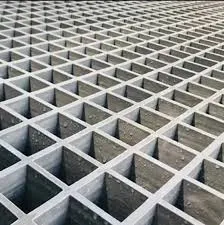
-
 Afrikaans
Afrikaans -
 Albanian
Albanian -
 Amharic
Amharic -
 Arabic
Arabic -
 Armenian
Armenian -
 Azerbaijani
Azerbaijani -
 Basque
Basque -
 Belarusian
Belarusian -
 Bengali
Bengali -
 Bosnian
Bosnian -
 Bulgarian
Bulgarian -
 Catalan
Catalan -
 Cebuano
Cebuano -
 China
China -
 China (Taiwan)
China (Taiwan) -
 Corsican
Corsican -
 Croatian
Croatian -
 Czech
Czech -
 Danish
Danish -
 Dutch
Dutch -
 English
English -
 Esperanto
Esperanto -
 Estonian
Estonian -
 Finnish
Finnish -
 French
French -
 Frisian
Frisian -
 Galician
Galician -
 Georgian
Georgian -
 German
German -
 Greek
Greek -
 Gujarati
Gujarati -
 Haitian Creole
Haitian Creole -
 hausa
hausa -
 hawaiian
hawaiian -
 Hebrew
Hebrew -
 Hindi
Hindi -
 Miao
Miao -
 Hungarian
Hungarian -
 Icelandic
Icelandic -
 igbo
igbo -
 Indonesian
Indonesian -
 irish
irish -
 Italian
Italian -
 Japanese
Japanese -
 Javanese
Javanese -
 Kannada
Kannada -
 kazakh
kazakh -
 Khmer
Khmer -
 Rwandese
Rwandese -
 Korean
Korean -
 Kurdish
Kurdish -
 Kyrgyz
Kyrgyz -
 Lao
Lao -
 Latin
Latin -
 Latvian
Latvian -
 Lithuanian
Lithuanian -
 Luxembourgish
Luxembourgish -
 Macedonian
Macedonian -
 Malgashi
Malgashi -
 Malay
Malay -
 Malayalam
Malayalam -
 Maltese
Maltese -
 Maori
Maori -
 Marathi
Marathi -
 Mongolian
Mongolian -
 Myanmar
Myanmar -
 Nepali
Nepali -
 Norwegian
Norwegian -
 Norwegian
Norwegian -
 Occitan
Occitan -
 Pashto
Pashto -
 Persian
Persian -
 Polish
Polish -
 Portuguese
Portuguese -
 Punjabi
Punjabi -
 Romanian
Romanian -
 Russian
Russian -
 Samoan
Samoan -
 Scottish Gaelic
Scottish Gaelic -
 Serbian
Serbian -
 Sesotho
Sesotho -
 Shona
Shona -
 Sindhi
Sindhi -
 Sinhala
Sinhala -
 Slovak
Slovak -
 Slovenian
Slovenian -
 Somali
Somali -
 Spanish
Spanish -
 Sundanese
Sundanese -
 Swahili
Swahili -
 Swedish
Swedish -
 Tagalog
Tagalog -
 Tajik
Tajik -
 Tamil
Tamil -
 Tatar
Tatar -
 Telugu
Telugu -
 Thai
Thai -
 Turkish
Turkish -
 Turkmen
Turkmen -
 Ukrainian
Ukrainian -
 Urdu
Urdu -
 Uighur
Uighur -
 Uzbek
Uzbek -
 Vietnamese
Vietnamese -
 Welsh
Welsh -
 Bantu
Bantu -
 Yiddish
Yiddish -
 Yoruba
Yoruba -
 Zulu
Zulu
Exploring the Advantages of FRP Vessels in Modern Engineering Applications
The Rising Importance of FRP Vessels in Modern Industry
In today's rapidly evolving industrial landscape, the demand for durable and efficient materials has never been more critical. One of the frontrunners in this area is Fiber Reinforced Polymer (FRP) vessels. These vessels, crafted from composite materials that combine polymers with fibers, such as glass or carbon, have gained significant traction across various sectors due to their remarkable properties.
FRP vessels are celebrated for their lightweight and high strength, making them an ideal choice for applications where traditional materials may falter. Unlike steel or other metals, FRP does not corrode, a characteristic that has substantial implications for industries that rely on liquid storage, such as chemical processing and water treatment. In fact, the lifespan of FRP vessels can far exceed that of their metal counterparts, leading to lower maintenance costs and enhanced sustainability.
The Rising Importance of FRP Vessels in Modern Industry
Moreover, the manufacturing process for FRP vessels allows for greater design flexibility. Unlike traditional materials, FRP can be molded into complex shapes and sizes, catering to specific needs without the limitations often imposed by metalworking. This adaptability is particularly beneficial in applications ranging from aerospace to marine industries, where customized vessels can enhance performance and efficiency.
frp vessel

The thermal insulation properties of FRP vessels also contribute to their growing popularity. These vessels help maintain temperature control, which is crucial for industries such as food processing or pharmaceuticals, where temperature stability is essential. The insulation characteristics of FRP not only preserve product quality but also diminish energy costs, aligning with the global push towards more sustainable practices.
FRP vessels are increasingly used in the construction of tanks for storage, transportation, and processing. Their applications span numerous settings, including oil and gas, power generation, and wastewater treatment. The integration of FRP vessels can result in significant operational efficiencies, reduced environmental impact, and overall cost savings.
Despite the clear advantages, it is important to address some challenges associated with FRP vessels. Initial manufacturing costs can be higher compared to traditional materials, which can deter some companies from transitioning to this innovative solution. Furthermore, the recycling of FRP materials presents a complication, as their composite nature makes them less straightforward to recycle compared to metals.
However, advancements in material science are paving the way for potential solutions. Researchers are actively exploring methods to enhance the recyclability of FRP composites, which could further solidify the position of FRP vessels in the market. Additionally, the development of more cost-effective manufacturing techniques promises to lower barriers to entry, making FRP a more attractive option for various industries.
In conclusion, FRP vessels are carving out a distinct niche within contemporary industry. With their combination of strength, lightweight properties, and resistance to corrosion, they present a compelling alternative to traditional materials. As industries continue to seek out sustainable, efficient, and cost-effective solutions, the role of FRP vessels is likely to expand, making them a cornerstone of modern engineering and manufacturing practices. The future looks bright for FRP technology, ushering in a new era of innovation in materials science.









